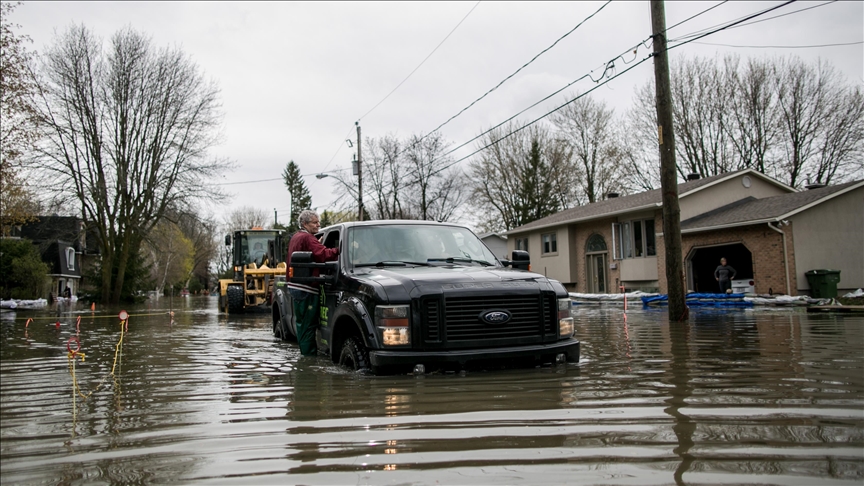Catastrophic flooding caused by historic rainfall has forced thousands from their homes in the Canadian province of British Columbia as recovery crews continued to work feverishly Wednesday on rescue operations.
The lower part of British Columbia, including the heavily populated, 2.6 million, Vancouver area, is essentially cut off from the rest of the province and Canada as mudslides and floodwaters fueled by a foot of rain wiped out roads and railway lines.
More than 300 people trapped on a highway between a raging river that overflowed its banks and mudslides were rescued earlier this week as military helicopters and troops joined rescue efforts.
Many communities, including the entire city of Merritt, population 7,100, had to evacuate as water pounded the area, sweeping away homes, barns and other buildings.
Residents in the rural areas of Abbotsford, population just under 150,000, who are trying to rescue cows, horses and hens have been told by officials to "abandon their efforts to save livestock" and leave immediately.
What is called an "atmospheric river" dumped a month's worth of rain, 12 inches, in two days. Atmospheric rivers are long powerful corridors of concentrated moisture carried from the ocean. British Columbia borders the Pacific Ocean.
The food supply chain is also threatened as drivers are stuck due to road closures. Reports are that supermarkets have been stripped of goods.
- We fully recognize how important it is right now in British Columbia to reopen the road connections from the Lower Mainland to the Interior to get supply chains moving again - said Rob Fleming, the province's minister of transportation.
Given the chaotic conditions, it is surprising that only one death has been reported, but that may increase as rescuers continue to probe mudslides and floods.
All this comes after British Columbia suffered a historic heatwave that produced record-breaking temperatures this past summer. Officials said it killed about 600 people.
